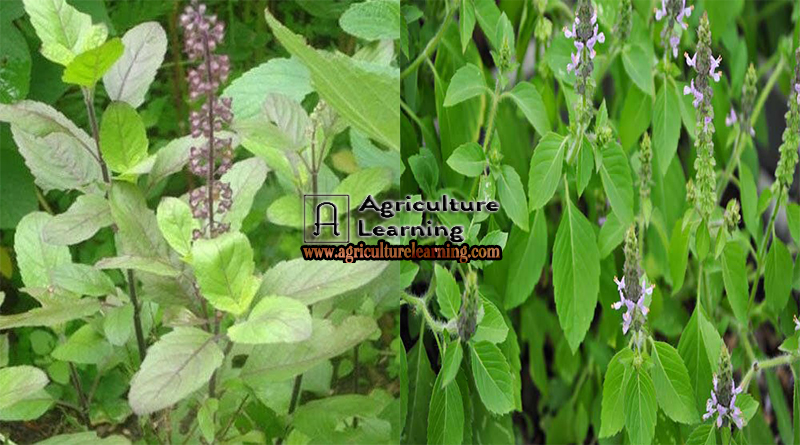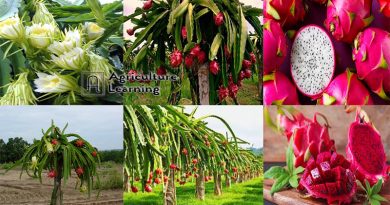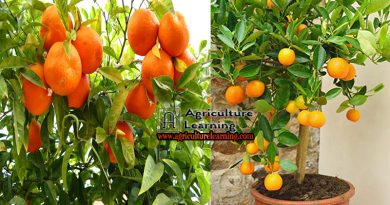Basil or Tulsi Planting Information | Medicinal Values of Basil Plant
Basil or Tulsi (ocimum basilicum) is one of the most important medicinal and culinary herbs widely used all over the world often referred to as the “King of the Herbs”. It belongs to the family of “Lamiaceae”. Native to India, Iran, and other warmer regions of Asia as far east as China, basil has been cultivated for thousands of years. It was introduced to western Europe in the sixteenth century, and shortly thereafter, became a key flavoring component in Mediterranean cuisine. Most of the people grow more than 150 species are cultivated in the world.
In Bangladesh, Krishna basil (Tulsi) and Ram basil (Tulsi) are used for worship by the Hindus from early ages. Many other Tulsi viz. Babui, Purple, Lemon are grown in different parts of Bangladesh and mostly used for medicinal and culinary purpose
Moreover, you can find two different varieties for commercial farming in the Asian countries. These are purple basil or Krishna basil (Tulsi) and green basil or Sri basil (Tulsi). These two varieties of basil are used in India for commercial purpose.
Climate Requirement: Basil plant can be grown in a wide variety of climate including tropical and subtropical conditions. High temperatures are best for its growth and good oil content. It requires moderate annual rainfall with humid conditions for better yield.
Soil Requirement: Basil plant can be grown on a wide range of soils. Moreover, rich sandy loam soils with good internal drainage are ideal for its cultivation. The soil pH of 5.5 – 7.0 is ideal for better yield of Basil or Tulsi.
Land preparation: The land should be ploughed 2 or 3 times with local plough or tractor to bring to the soil to a fine tilth. For better yield add 15 tons of farm Yard Manure in the soil. To avoid any waterlogging make the good internal drainage in the soil.
Propagation: The Basil plant crop can be propagated through seeds or cuttings.
Seed rate: About 300g seeds are required for one hectare of land.
Manures and Fertilizers: Apply Farm Yard Manure of 6 tons per acre as part of the land preparation. Fertilizers N@ 48 kg, P250 @ 24 kg and K20 @24kg/acre.
Pests and Diseases Management: Major pest found in basil cultivation is leaf rollers and common diseases found are Powdery mildew, root-rot and seeding blight.
Leaf Rollers
Control measures:
- Spray the crop with 0.2% malathion/Sumithion or 0.1% methyl parathion.
Powdery mildew
Control measures:
- Spray the crop with 0.3% wettable Sulphur.
- Nursery beds should be drenched with a 0.1% solution of mercurial fungicide.
Root-rot/Seeding blight
Control measures:
- Adopt phytosanitary measures.
Basil health benefits:
- Reduces stress
- Strong antibacterial properties
- Rich source of antioxidants
- Prevents some harmful effects of aging
- Reduces inflammation and swelling
- Strengthens bones and liver
- Boosts immunity
- Boosts metabolism
- Improves digestion
Medicinal Values of Basil
- First of all, basil is very high in antioxidants, especially when it is used as an extract or oil.
- Additionally, it is effective in sharping memory.
- It may help in curing fever, cough, and cold.
- Basil is an important ingredient in cough syrups and expectorants. It can also relieve mucus in asthma and bronchitis.
- Basil can reduce the cholesterol level.
- Basil juice is a good for night-blindness and sore eyes.
- Basil helps to cure some skin diseases like leukoderma.
Common uses:
- Sprinkle as a garnish for dishes
- Include as ingredient for smoothies




